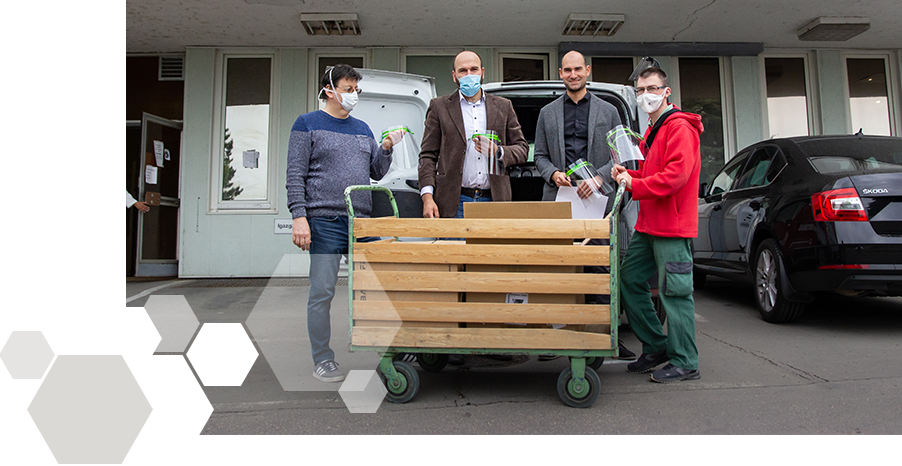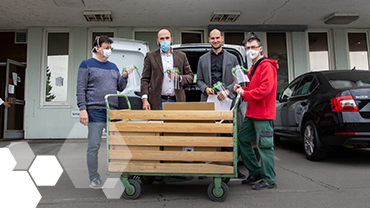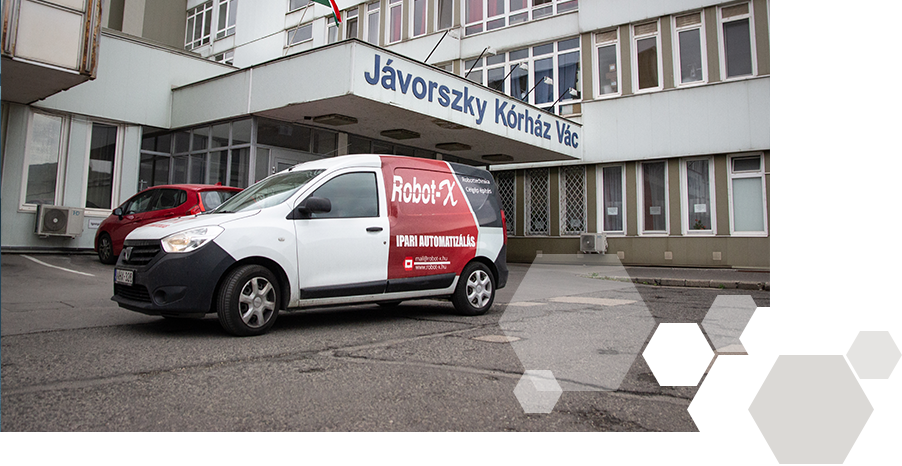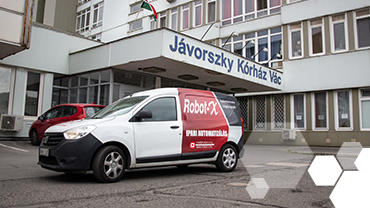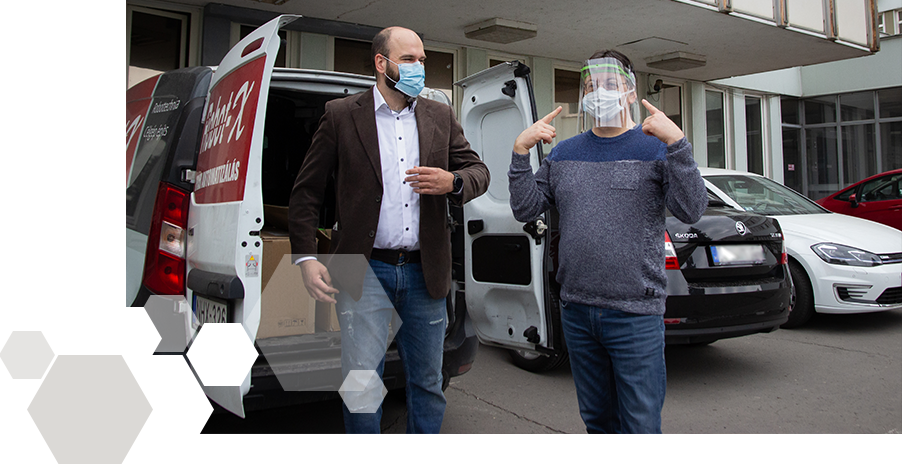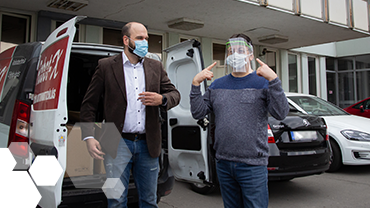The biggest advantage of plastic face shields, used primarily by healthcare workers today, is that they protect the entire face. Not only are they durable and reuseable after a disinfectant wash, but in general face shields are more comfortable to wear on the long run than simple face masks. Research shows that when worn with masks, face shields can reduce viral exposure by up to 96% in cases where healthcare workers need to be in close proximity to coughing patients (whether infected with coronavirus, influenza, or other pathogens that cause droplet infection).
Recently, countless companies around the world - e.g. Apple, Nike or GM - have put a part of their production capacity at the service of healthcare, and many companies in Hungary have also started to produce the parts and straps needed for face shields on their production lines or 3D printers. The only but huge limitation of the production of face shields in the recent period was the lack of plexiglass raw material. Water-clear, transparent plexiglass is now purchased in record quantities by the trade sector all over the world since this material is used to separate and make safer cash registers and handover stations in retail units. Once the raw material is available, protective equipment can be produced relatively quickly using a variety of processes, and there are now separate groups (such as the “3D Printing Against the Coronavirus” initiative on Facebook) to make production and distribution as efficient as possible.
Robot-X's Manufacturing Department, located only 10 km from the Vác Hospital, uses 3D printing to make various components, e.g. inserts for grippers for automotive robots. Besides, the team also uses 3D print technology for pre-production and testing of certain workpieces. The face shields Robot-X donated for the Vác hospital were made on the same 3D printers in Sződ.
